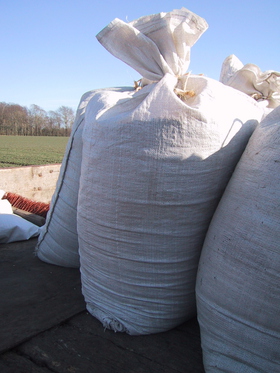

The EU intervenes in the agricultural market when the price for an agricultural product falls below a reference price or target price. It maintains high farm prices inside the EU by buying food products at artificially high prices and keeping them in storage before destroying them or selling them outside the EU. The prices are politically fixed. This keeps prices high for farmers, but at the expense of higher prices for consumers.
The costs of the CAP are paid from the common EU budget by tax-payers in all member states. The interventions are controlled by national authorities, which often have an interest in encouraging as much intervention as possible so as to obtain EU money. The motivation to save money and to avoid fraud is therefore weak. Many of the gains from intervention go to middlemen and fraud rather than EU farmers. The costs for consumers and taxpayers are normally much higher than the total net incomes of farmers.
The interventions in the market have decreased over the last years when most subsidies have been de-coupled. Instead of most price support the EU has introduced direct aid to farmers and other people and companies in possession of land.
Notes